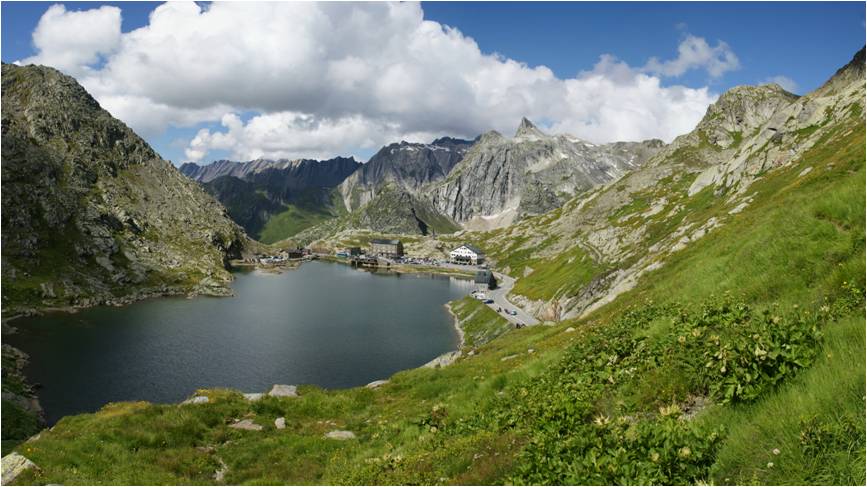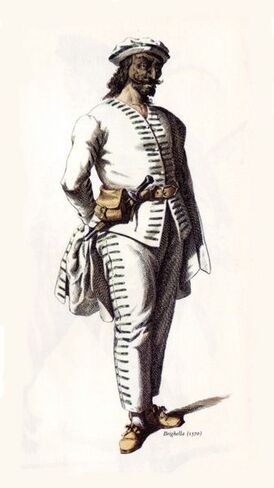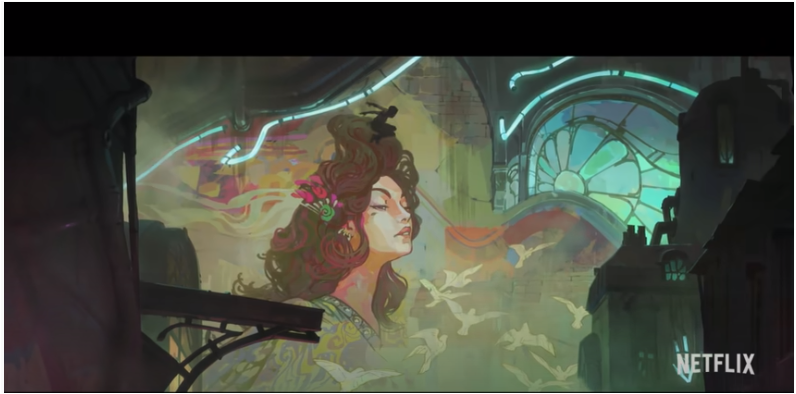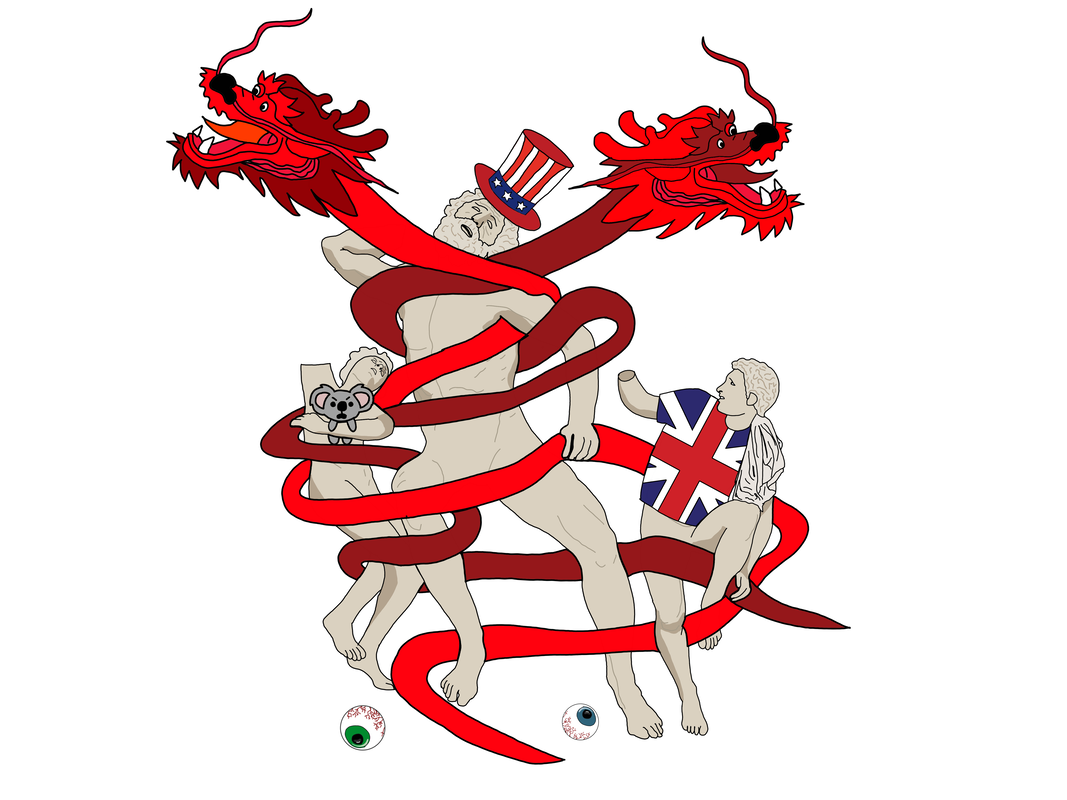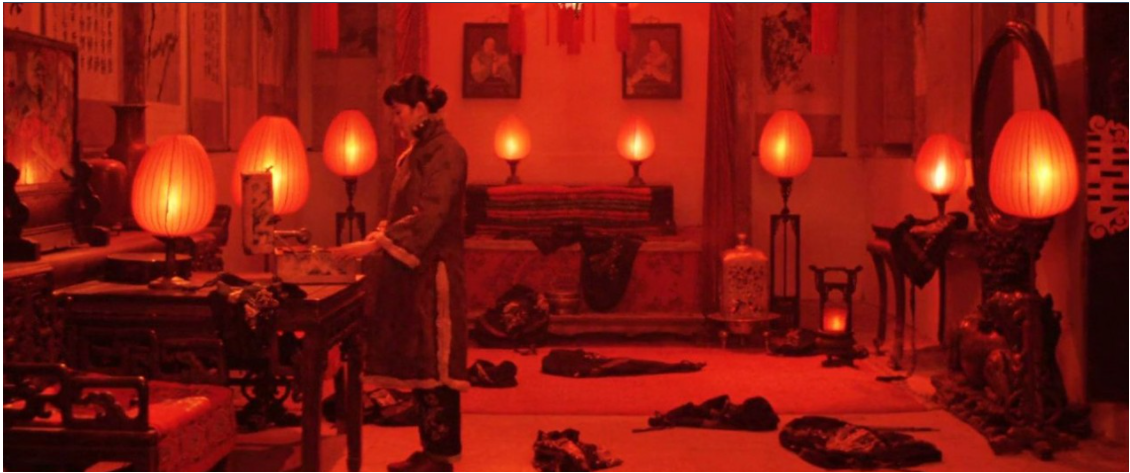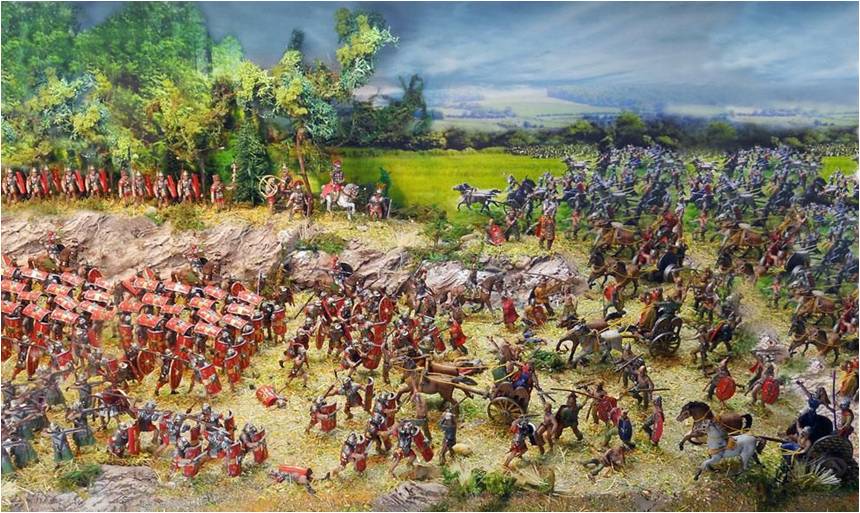| linguae |
|
- HOME
-
LATIN & GREEK
-
CIRCULUS LATINUS HONCONGENSIS
>
- ORATIO HARVARDIANA 2007
- NOMEN A SOLEMNIBUS
- CARMINA MEDIAEVALIA
- BACCHIDES
- LATIN & ANCIENT GREEK SPEECH ENGINES
- MARCUS AURELIUS
- ANGELA LEGIONEM INSPICIT
- REGINA ET LEGATUS
- HYACINTHUS
- LATINITAS PONTIFICALIS
- SINA LATINA >
- MONUMENTA CALEDONICA
- HISTORIA HONCONGENSIS
- ARCADIUS AVELLANUS
- LONDINIUM
- ROMAN CALENDAR
- SOMNIUM
- CIRCULUS VOCABULARY
- HESIOD
- CONVENTUS FEBRUARIUS (I)
- CONVENTUS FEBRUARIUS (II)
- CONVENTUS MARTIUS
- CONVENTUS APR 2018
- CONVENTUS APRILIS
- CONVENTUS MAIUS
- CONVENTUS IUNIUS
- CONVENTUS IULIUS
- CONVENTUS SEPT 2017
- CONVENTUS OCT 2017
- CONVENTUS NOV 2017
- CONVENTUS DEC 2017
- CONVENTUS DEC 2017 (II)
- CONVENTUS JAN 2018
- CONVENTUS FEB 2018
- CONVENTUS MAR 2018
- CONVENTUS MAIUS 2018
- CONVENTUS IUN 2018
- CONVENTUS IUL 2018
- CONVENTUS SEPT 2018
- CONVENTUS OCT 2018
- CONVENTUS NOV 2018
- CONVENTUS DEC 2018
- CONVENTUS NATIVITATIS 2018
- CONVENTUS IAN 2019
- CONVENTUS FEB 2019
- CONVENTUS MAR 2019
- CONVENTUS APR 2019
- CONVENTUS MAIUS 2019
- CONVENTUS IUN 2019
- CONVENTUS IULIUS 2019
- CONVENTUS SEP 2019
- CONVENTUS OCT 2019
- CONVENTUS NOV 2019
- CONVENTUS DEC 2019
- CONVENTUS JAN 2020
- CONVENTUS FEB 2020
- CONVENTUS MAR 2020
- CONVENTUS APR 2020
- CONVENTUS IUL 2020
- CONVENTUS SEP 2020 (I)
- CONVENTUS SEPT 2020 (II)
- CONVENTUS OCT 2020
- CONVENTUS NOV 2020
- CONVENTUS IAN 2021
- CONVENTUS IUN 2021
- CONVENTUS IULIUS 2021
- CONVENTUS AUG 2021
- CONVENTUS SEPT 2021
- CONVENTUS OCT 2021
- CONVENTUS NOV 2021
- CONVENTUS FEB 2022 (1)
- CONVENTUS FEB 2022 (2)
- CONVENTUS MAR 2022
- CONVENTUS APRILIS 2022
- CONVENTUS MAIUS 2022
- CONVENTUS IUN 2022
- CONVENTUS IUL 2022
- CONVENTUS SEP 2022
- CONVENTUS OCT 2022
- CONVENTUS NOV 2022
- CONVENTUS DEC 2022
- CONVENTUS IAN 2023
- CONVENTUS FEB 2023
- CONVENTUS MARTIUS 2023
- CONVENTUS APRIL 2023
- CONVENTUS MAIUS 2023
- CONVENTUS IUN 2023
- CONVENTUS IUL 2023
- CONVENTUS SEP 2023
- CONVENTUS OCT 2023
- CONVENTUS IAN 2024
- CONVENTUS MARTIUS (I) 2024
- RES GRAECAE >
-
IN CONCLAVI SCHOLARI
>
- LATIN I
- LATIN I (CAMBRIDGE)
- LATIN II (CAMBRIDGE)
- LATIN II (MON)
- LATIN II (SAT)
- LATIN III (MON)
- LATIN III (SAT)
- LATIN IV (MON)
- LATIN TEENAGERS I
- LATIN TEENAGERS II
- LATIN TEENAGERS III
- LATIN TEENAGERS IV
- LATIN TEENAGERS V
- LATIN TEENAGERS VI
- LATIN TEENAGERS VII
- LATIN TEENAGERS VIII
- LATIN TEENAGERS IX
- LATIN TEENAGERS X
- LATIN TEENAGERS XI
- LATIN SPACE I
- LATIN SPACE II
- LATIN SPACE III
- LATIN SPACE IV
- CARPE DIEM
- INITIUM ET FINIS BELLI
- EPISTULA DE EXPEDITIONE MONTANA
- DE LATINE DICENDI NORMIS >
- ANECDOTA VARIA
- RES HILARES
- CARMINA SACRA
- CORVUS CORAX
- SEGEDUNUM
- VIDES UT ALTA STET NIVE
- USING NUNTII LATINI
- FLASHCARDS
- CARMINA NATIVITATIS
- CONVENTUS LATINITATIS VIVAE >
- CAESAR
- SUETONIUS
- BIBLIA SACRA
- EUTROPIUS
- CICERO
- TACITUS
- AFTER THE BASICS
- AD ALPES
- LIVY
- PLINY
- OVID
- AENEID IV
- AENEID I
- QUAE LATINITAS SIT MODERNA
-
CIRCULUS LATINUS HONCONGENSIS
>
-
NEPALI
- CORRECTIONS TO 'A HISTORY OF NEPAL'
- GLOBAL NEPALIS
- NEPALESE DEMOCRACY
- CHANGE FUSION
- BRIAN HODGSON
- KUSUNDA
- JANG BAHADUR IN EUROPE
- ANCESTORS OF JANG
- SINGHA SHAMSHER
- RAMESH SHRESTHA
- RAMESH SHRESTHA (NEPALI)
- NEPALIS IN HONG KONG
- VSO REMINISCENCES
- BIRGUNJ IMPRESSIONS
- MADHUSUDAN THAKUR
- REVOLUTION IN NEPAL
- NEPAL 1964-2014
- BEING NEPALI
- EARTHQUAKE INTERVIEW
- ARCHIVES IN NEPAL
- FROM THE BEGINNING
- LIMITS OF NATIONALISM
- REST IS HISTORY FOR JOHN WHELPTON
- LIMPIYADHURA AND LIPU LEKH
- BHIMSEN THAPA AWARD LECTURE
- HISTORICAL FICTION
- READING GUIDE TO NEPALESE HISTORY
- LANGUAGES OF THE HIMALAYAS
- REVIEW OF LAWOTI (2007)
- ROMANCE LANGUAGES
-
English
- VIETNAM REFLECTIONS
- GRAMMAR POWERPOINTS
- PHONETICS POWERPOINTS
- MAY IT BE
- VILLAGE IN A MILLION
- ENGLISH RHETORIC
- BALTIC MATTERS
- SHORT STORIES QUESTIONS
- WORD PLAY
- SCOTS
- INTERNATIONAL SCHOOLS
- STORY OF NOTTINGHAM
- MEET ME BY THE LIONS
- MNEMONICS
- ALTITUDE
- KREMLIN'S SUICIDAL IMPERIALISM
- CLASSROOM BATTLEFIELD
- MATHEMATICS AND HISTORICAL LINGUISTICS
- OLD TESTAMENT INJUNCTIONS
- KUIRE ORIGINS
- BALTI
- CUBA
- JINNAH AND MODERN PAKISTAN
- ENGLISH IS NOT NORMAL
- HKAS
QUESTIONS ARISING FROM 132nd. MEETING – 25/2/22
(the record of earlier meetings can be downloaded from the main Circulus page as can the version of Ciceronis Filius with illustrations added. The illustrated text of Genesis is available on the Genesis page, of Kepler's Somnium on the Somnium page and of Nutting's Ad Alpes on the Ad Alpes page)
Compelled to return to Zoom, in view of the worsening Covid 19 situation, some of us managed to retain one of the pleasures of gathering in person in the Basmati by drinking wine as we sat at our computers. When refilling her glass, Tanya mistook a bottle of Latvia’s national drink, (Rīgas) Melnais balzams (Balsum atrum Rīgēnse?) for the standard vīnum rubrum and took a bigger mouthful than one would want, considering black Balzam is about 55% alcohol. She remained, however, perfectly coherent throughout the rest of the session. John was reminded of his mother-in-law’s experience many years ago wgen she inadvetntly took a large swig of gin in John and Rita’s kitchen. A pardonable mistake because we were then in the habit of using old gin bottles to store drinking water. John was also reminded of the unfortunate experience when, misled by the sweet taste, he rapidly downed a glass of bhang, the South Asian hemp-based drink. The result is described in memoir number 4 at https://linguae.weebly.com/madhusudan-thakur.html
We finally got to the end of the Latin novel Ad Alpes. Although the collection of stories in Nutting’s book has provided us with plenty of excellent reading over the last two-and-a-half years, the conclusion of the frame narrative is less than jaw-dropping. Cornelius and his faithful slave, Onesimus, having parted from the rest of the household at Placentia (Piacenza), arrive at an inn at the foot of the Great St. Bernard Pass and we are simply then told, Sīc AD ALPĒS perventum est (`Thus they completed the journey to the Alps’). In the best traditions of fan fiction, Chris C suggested substituting the sentence In amplexu mortui fuērunt (`They died in an embrace’).
We finally got to the end of the Latin novel Ad Alpes. Although the collection of stories in Nutting’s book has provided us with plenty of excellent reading over the last two-and-a-half years, the conclusion of the frame narrative is less than jaw-dropping. Cornelius and his faithful slave, Onesimus, having parted from the rest of the household at Placentia (Piacenza), arrive at an inn at the foot of the Great St. Bernard Pass and we are simply then told, Sīc AD ALPĒS perventum est (`Thus they completed the journey to the Alps’). In the best traditions of fan fiction, Chris C suggested substituting the sentence In amplexu mortui fuērunt (`They died in an embrace’).
Great St.Bernard Pass, view towards Italy with the Roman road along which Cornelius and Onesimus were to travel just visible at the top of the grassy area above the modern road in the centre[1]
https://en.wikipedia.org/wiki/Great_St_Bernard_Pass
https://en.wikipedia.org/wiki/Great_St_Bernard_Pass
[1] This pass was the route followed by Napoleon in 1800. The photograph on the Wikipedia page is very high resolution (and therefore too large to be displayed here), enabling the reader to zoom in for detail.
The text we read included the story from Cicero’s De Divinatione of two young men, one of whom was murdered by an innkeeper but then, as a ghost, visited his friend in a dream and asked him to avenge his death. The phrase used for `in a dream’ was in somnīs, which might be from somnium, -ī (dream) (with contraction of the vowels in ablative plural somniīs) or somnus, -ī m (sleep). Another puzzle in the text was the choice of verb forms in the sentence nisi dormiās, somniāre nōn potes (presumably meaning `unless you sleep, you can’t dream). One would expect the indicative dormīs in the first clause rather than the subjunctive. Two subjunctives (dormiās...possīs) would also make a normal sentence but the resultant meaning (`Unless you were to sleep, you wouldn’t dream’) does not fit the context.
We discussed the interjection vae (Greek οὐαί), employed to express woe or distress and perhaps best-known from the phrase Vae victīs, allegedly uttered by the Gallic leader Brennus. This was supposedly when the Romans complained that he was taking more than had been agreed as his payment for leaving Rome after his capture of it in 390 B.C. We went on to mention the Cantonese Aieeyaa, which denotes pained surprise. Chris C. said this was very similar to Afrikaans ai ja, roughly equivalent to `I knew this was going to happen.’ John mentioned the theory that a polyglot’s truly dominant language is the one he or she swears in after dropping something on their foot. Chris concluded the discussion by recommending the book How to Insult, Abuse and Insinuate in Classical Latin, for which see https://www.amazon.co.uk/Insult-Abuse-Insinuate-Classical-Latin/dp/0091864453
The text we read included the story from Cicero’s De Divinatione of two young men, one of whom was murdered by an innkeeper but then, as a ghost, visited his friend in a dream and asked him to avenge his death. The phrase used for `in a dream’ was in somnīs, which might be from somnium, -ī (dream) (with contraction of the vowels in ablative plural somniīs) or somnus, -ī m (sleep). Another puzzle in the text was the choice of verb forms in the sentence nisi dormiās, somniāre nōn potes (presumably meaning `unless you sleep, you can’t dream). One would expect the indicative dormīs in the first clause rather than the subjunctive. Two subjunctives (dormiās...possīs) would also make a normal sentence but the resultant meaning (`Unless you were to sleep, you wouldn’t dream’) does not fit the context.
We discussed the interjection vae (Greek οὐαί), employed to express woe or distress and perhaps best-known from the phrase Vae victīs, allegedly uttered by the Gallic leader Brennus. This was supposedly when the Romans complained that he was taking more than had been agreed as his payment for leaving Rome after his capture of it in 390 B.C. We went on to mention the Cantonese Aieeyaa, which denotes pained surprise. Chris C. said this was very similar to Afrikaans ai ja, roughly equivalent to `I knew this was going to happen.’ John mentioned the theory that a polyglot’s truly dominant language is the one he or she swears in after dropping something on their foot. Chris concluded the discussion by recommending the book How to Insult, Abuse and Insinuate in Classical Latin, for which see https://www.amazon.co.uk/Insult-Abuse-Insinuate-Classical-Latin/dp/0091864453
The most recent publication from Larry Feign, best-known for his `Lily Wong’ cartoons
https://larryfeign.com/aieeyaaa.html
The evil inkeeper in the Ad Alpes story reminded John of the Hong Kong martial arts film, New Dragon Gate Inn, (新龍門客棧) in which the beautiful but deadly Jade, played by Maggie Cheung ( 張曼玉), drugged male guests and slid them down to the basement to be chopped up as filling for meat pies. Details of the plot are available at https://en.wikipedia.org/wiki/New_Dragon_Gate_Inn
https://larryfeign.com/aieeyaaa.html
The evil inkeeper in the Ad Alpes story reminded John of the Hong Kong martial arts film, New Dragon Gate Inn, (新龍門客棧) in which the beautiful but deadly Jade, played by Maggie Cheung ( 張曼玉), drugged male guests and slid them down to the basement to be chopped up as filling for meat pies. Details of the plot are available at https://en.wikipedia.org/wiki/New_Dragon_Gate_Inn
Maggie Cheung as Jade
The topic of stock characters led Tanya. to mention the Italian theatre genre Comedia dell’arte, for which see the detailed account at https://en.wikipedia.org/wiki/Commedia_dell%27arte. Originating in the 16th century and also known as commedia improvviso, this involved a prescribed stock of stereotypical characters and probably a rough outline of the plot, with further details then worked out by the actors themselves in each performance. Chris C. noted that a preference for stereotypes also characterised opera because composers wanted people to focus on the music rather than on subtleties of character. One such stock type was the amoral but entertaining trickster, often given the name Brighella (see https://en.wikipedia.org/wiki/Brighella), who may have been the ultimate origin of Mozart’s Figaro.
The topic of stock characters led Tanya. to mention the Italian theatre genre Comedia dell’arte, for which see the detailed account at https://en.wikipedia.org/wiki/Commedia_dell%27arte. Originating in the 16th century and also known as commedia improvviso, this involved a prescribed stock of stereotypical characters and probably a rough outline of the plot, with further details then worked out by the actors themselves in each performance. Chris C. noted that a preference for stereotypes also characterised opera because composers wanted people to focus on the music rather than on subtleties of character. One such stock type was the amoral but entertaining trickster, often given the name Brighella (see https://en.wikipedia.org/wiki/Brighella), who may have been the ultimate origin of Mozart’s Figaro.
Brighella (16th century)
https://en.wikipedia.org/w/index.php?curid=6941831
Chris mentioned his own article in the South African classics journal Acroterion, `An Example of Literary Blackmail’, which examines how Cicero, ever anxious to boost his own reputation, tried to pressurize Rome’s leading scholar, Varro, to fulfil a promise to dedicate a work to him. The strategywas to refer to the promise in Cicero’s own Academica, a work on the theory of knowledge in dialogue form, the second edition of which is dedicated to Varro and in which Varro himself is made one of the speakers. Chris’s article appeared in volume 63 (2018) of the journal and can be accessed at https://akroterion.journals.ac.za/pub/article/view/994 He also referred to the successful prosecution of the corrupt ex-governor Verres in 70 B.C. which established Cicero as Rome’s leading courtroom orator. Chris believed that Verres’ own network of connections was so vast that only a peripheral figure, as Cicero then was, could take the risk of opposing him. The speeches as we have them today include ones that Cicero published but had never actually delivered in court because his opening presentation of the evidence was so devastating that Verres immediately fled into exile. Chris strongly recommended reading the speeches in the original and offered to lend Sam the Loeb edition
On another tack, reference was made to `Arcane’, a new animation series on Netflix set in the League of Legends imaginary universe, which features the conflict between `Topside’, the world of the privileged and the `Under City ‘
https://en.wikipedia.org/w/index.php?curid=6941831
Chris mentioned his own article in the South African classics journal Acroterion, `An Example of Literary Blackmail’, which examines how Cicero, ever anxious to boost his own reputation, tried to pressurize Rome’s leading scholar, Varro, to fulfil a promise to dedicate a work to him. The strategywas to refer to the promise in Cicero’s own Academica, a work on the theory of knowledge in dialogue form, the second edition of which is dedicated to Varro and in which Varro himself is made one of the speakers. Chris’s article appeared in volume 63 (2018) of the journal and can be accessed at https://akroterion.journals.ac.za/pub/article/view/994 He also referred to the successful prosecution of the corrupt ex-governor Verres in 70 B.C. which established Cicero as Rome’s leading courtroom orator. Chris believed that Verres’ own network of connections was so vast that only a peripheral figure, as Cicero then was, could take the risk of opposing him. The speeches as we have them today include ones that Cicero published but had never actually delivered in court because his opening presentation of the evidence was so devastating that Verres immediately fled into exile. Chris strongly recommended reading the speeches in the original and offered to lend Sam the Loeb edition
On another tack, reference was made to `Arcane’, a new animation series on Netflix set in the League of Legends imaginary universe, which features the conflict between `Topside’, the world of the privileged and the `Under City ‘
ARCANE Trailer
https://www.youtube.com/watch?v=fXmAurh012s
As often before, we exchanged reflections on our language learning experiences. After living for a few months in France and acquiring excellent conversational skills, Tanya was placed in the top set for the language in her first year at university, where she started out studying French, Russian and English literature. However, with little command of formal grammar or of the written language, she soon found herself struggling and at the end of the year switched to visual arts. John mentioned his brother’s partially similar trajectory. He started at university studying French, which he had already been learning for seven years at secondary school, and also Spanish. He also had a good command of spoken French after several months working as a social service volunteer just outside Paris. As a result, he realised at once that his tutor, despite his excellent knowledge of French literature, pronounced the language abominably and this was one of the reasons why, at the end of his first year, he transferred to social and political studies,
John’s brother described the tutor as speaking `Ted Heath French’, a reference to Edward Heath, who as UK prime minister took the country into the European Union (then known as the European Common Market) in 1973. John resembles Heath in combining great enthusiasm for European unity with very poor pronunciation of French and of any other modern language other than his native one, and he is therefore rather sensitive on this point. He vividly remembers how in 1975, during the campaign for the first referendum on EU membership, he heard on the radio how an anti-EU politician had first played a clip of Heath’s mangled French and then read out the same words accurately himself. In a way this served the legitimate purpose of showing that not all opponents of the EU were cultural philistines but the mocking of Heath’s and John's own linguistic weak point triggered a wave of anger.
One reason why John decided early on to specialise in classical languages was precisely that, as taught nowadays, they require analytical, grammatical skills rather than phonic ability. You are generally expected to pronounce Latin and ancient Greek using the nearest equivalents from your own native language’s phonemic repertoire, a low enough standard even if John himself did not actually meet it until many years after leaving university! However, whilst we do have secure knowledge of the approximate nature of the individual sounds of classical Latin, the precise details and also the intonation patterns are beyond recovery so there is no authentic accent for us to aim at. As John often puts it, `All the native speakers are very conveniently dead!’
Whilst studying for his MA in applied linguistics in 1996-8, John compiled an account of his (mis)adventures with all the languages he has dabbled in. Last updated in 2009, this is entitled `Notes on `Personal Language Learning Experience’ and can be downloaded from the bottom of https://linguae.weebly.com/ He welcomes comments from other language learners on where their own experiences either coincide or contradict his own.
https://www.youtube.com/watch?v=fXmAurh012s
As often before, we exchanged reflections on our language learning experiences. After living for a few months in France and acquiring excellent conversational skills, Tanya was placed in the top set for the language in her first year at university, where she started out studying French, Russian and English literature. However, with little command of formal grammar or of the written language, she soon found herself struggling and at the end of the year switched to visual arts. John mentioned his brother’s partially similar trajectory. He started at university studying French, which he had already been learning for seven years at secondary school, and also Spanish. He also had a good command of spoken French after several months working as a social service volunteer just outside Paris. As a result, he realised at once that his tutor, despite his excellent knowledge of French literature, pronounced the language abominably and this was one of the reasons why, at the end of his first year, he transferred to social and political studies,
John’s brother described the tutor as speaking `Ted Heath French’, a reference to Edward Heath, who as UK prime minister took the country into the European Union (then known as the European Common Market) in 1973. John resembles Heath in combining great enthusiasm for European unity with very poor pronunciation of French and of any other modern language other than his native one, and he is therefore rather sensitive on this point. He vividly remembers how in 1975, during the campaign for the first referendum on EU membership, he heard on the radio how an anti-EU politician had first played a clip of Heath’s mangled French and then read out the same words accurately himself. In a way this served the legitimate purpose of showing that not all opponents of the EU were cultural philistines but the mocking of Heath’s and John's own linguistic weak point triggered a wave of anger.
One reason why John decided early on to specialise in classical languages was precisely that, as taught nowadays, they require analytical, grammatical skills rather than phonic ability. You are generally expected to pronounce Latin and ancient Greek using the nearest equivalents from your own native language’s phonemic repertoire, a low enough standard even if John himself did not actually meet it until many years after leaving university! However, whilst we do have secure knowledge of the approximate nature of the individual sounds of classical Latin, the precise details and also the intonation patterns are beyond recovery so there is no authentic accent for us to aim at. As John often puts it, `All the native speakers are very conveniently dead!’
Whilst studying for his MA in applied linguistics in 1996-8, John compiled an account of his (mis)adventures with all the languages he has dabbled in. Last updated in 2009, this is entitled `Notes on `Personal Language Learning Experience’ and can be downloaded from the bottom of https://linguae.weebly.com/ He welcomes comments from other language learners on where their own experiences either coincide or contradict his own.
A modern comment on the famous statue of Laocoon and his sons
Chris C. mentioned a cartoon (reproduced) above, in which a student modifies the design of a celebrated ancient sculpture to reflect current political tensions. He stressed, however, that the student was not intending to endorse any particular stance on the issues the cartoon raised. The original design shows the priests and his sons being strangled by serpents that emerged from the sea after Laocoon himself had warned the Greeks that the Wooden Worse, which they were preparing to drag into the city, was a trap.
Chris C. mentioned a cartoon (reproduced) above, in which a student modifies the design of a celebrated ancient sculpture to reflect current political tensions. He stressed, however, that the student was not intending to endorse any particular stance on the issues the cartoon raised. The original design shows the priests and his sons being strangled by serpents that emerged from the sea after Laocoon himself had warned the Greeks that the Wooden Worse, which they were preparing to drag into the city, was a trap.
A scene from `Raise the Red Lantern’
https://www.easternkicks.com/reviews/raise-the-red-lantern
There was also some discussion on male attitudes towards women and to drinking in mainland China and elsewhere in East Asia. Monica felt she was herself a victim of this when on a business visit to the mainland with her Hong Kong boss and colleagues, who, unlike her, were not familiar with the culture there.
Tanya reported a similar experience on a visit to Beijing in 2002. She spent a month there in an arts establishment housed in a former pickle factory. Although the male artists themselves were avowedly anti-establishment, they still reflected old attitudes, with one of them asking Tanya if she wanted to become his second mistress! The government is, of course, theoretically opposed to attitudes which it would condemn as `feudal’ and which are famously on view in the film Raise the Red Lantern but feminist campaigning is frowned upon. Hong Kong society has been more heavily influenced by changes in attitude originating in Western countries but a heavy drinking culture is prevalent in some quarters and, interestingly, Hong Kong imports more sake than the whole of mainland China,
We turned again to the question of our next reading text. Chris remained interested in Caesar’s style, referring to his use of subordinate clauses to bury embarrassing points. We decided, however, to take up Eutropius next time. He is no great stylist but the Latin in his summary of Roman history to 364 A.D. is very straightforward and the text, with interlinear translation and notes, can be downloaded from https://linguae.weebly.com/eutropius.html
Still on the theme of Roman history, John mentioned that he had slightly modified the presentation of Boudiccas’s revolt in his PowerPoint BRITANNIA ROMANA.ppt., which can be downloaded from https://linguae.weebly.com/latin--greek.html (look for britannia.ppt). The most important change is the replacement of a very inauthentic still from a video game with a diorama using toy soldiers to depict the decisive battle between the British rebels and governor Suetonius Paulinus in 61 A.D. The diorama, created by Fero Miráz, is entitled `The Battle of Loughton’, reflecting the local belief that the engagement was fought near Loughton in Epping Forest. However, Loughton is NE of London and the battle was almost certainly fought NW of the city, somewhere along the line of Watling Street, the Roman road (or series of roads) connecting the capital with Viroconium (Wroxeter) near the present-day Welsh border
https://www.easternkicks.com/reviews/raise-the-red-lantern
There was also some discussion on male attitudes towards women and to drinking in mainland China and elsewhere in East Asia. Monica felt she was herself a victim of this when on a business visit to the mainland with her Hong Kong boss and colleagues, who, unlike her, were not familiar with the culture there.
Tanya reported a similar experience on a visit to Beijing in 2002. She spent a month there in an arts establishment housed in a former pickle factory. Although the male artists themselves were avowedly anti-establishment, they still reflected old attitudes, with one of them asking Tanya if she wanted to become his second mistress! The government is, of course, theoretically opposed to attitudes which it would condemn as `feudal’ and which are famously on view in the film Raise the Red Lantern but feminist campaigning is frowned upon. Hong Kong society has been more heavily influenced by changes in attitude originating in Western countries but a heavy drinking culture is prevalent in some quarters and, interestingly, Hong Kong imports more sake than the whole of mainland China,
We turned again to the question of our next reading text. Chris remained interested in Caesar’s style, referring to his use of subordinate clauses to bury embarrassing points. We decided, however, to take up Eutropius next time. He is no great stylist but the Latin in his summary of Roman history to 364 A.D. is very straightforward and the text, with interlinear translation and notes, can be downloaded from https://linguae.weebly.com/eutropius.html
Still on the theme of Roman history, John mentioned that he had slightly modified the presentation of Boudiccas’s revolt in his PowerPoint BRITANNIA ROMANA.ppt., which can be downloaded from https://linguae.weebly.com/latin--greek.html (look for britannia.ppt). The most important change is the replacement of a very inauthentic still from a video game with a diorama using toy soldiers to depict the decisive battle between the British rebels and governor Suetonius Paulinus in 61 A.D. The diorama, created by Fero Miráz, is entitled `The Battle of Loughton’, reflecting the local belief that the engagement was fought near Loughton in Epping Forest. However, Loughton is NE of London and the battle was almost certainly fought NW of the city, somewhere along the line of Watling Street, the Roman road (or series of roads) connecting the capital with Viroconium (Wroxeter) near the present-day Welsh border
AD ALPES c.XL, line to the end
"Pāpae!" inquit rūsticus. "Cum tālia audiō, timor maximus mihi inicitur. Hoc saltem iter
Waah said countryman when such-things I-hear fear greatest in-me is-instilled this at-least journey
sperō auspiciīs meliōribus 60 susceptum esse. Recordārī videor mē nūper quaedam
I-hope with-omens better undertaken to-have-been to-remember I-seem me recently certain-things
somniāsse, sed nihil certī reminīscī possum."
to-have-dreamed but nothing certain to-remember I-am-able
"Vidē sī hoc magis placet," inquit Celsus: "Ōlim duo adulēscentēs, cum in itinere
See if this more pleases said Celsus Once two young-men when on journey
Megarae cōnstitissent, alter ad caupōnem dēvertit, ad hospitem alter. 65
at-Megara they-had halted one at inn went-to-stay with guest-friend the-other
"Concubiā nocte illī, quī ad hospitem dēverterat, in somnīs alter adesse vidēbātur, cum
at-bedtime at-night to-him who with guest-friend had-gone-to-stay in dream the-other to-be-present seemed when
amīcum ēnīxē ōrāret, ut opem ferret, quod ā caupōne sibi interitus parārētur.
friend earnestly begged that help he-should-bring because by innkeeper for-him murder was-being-prepared
"Homō sānē perterritus surrēxit; deinde autem, cum sē collēgisset, somnium prō nihilō
Man of-course terrified got-up then however when self had-pulled-together dream as nothing
habendum ratus, iterum recubuit. 70
to-be-regarded having-thought again went-to-bed
"Tum eī dormientī alter rūrsus vidēbātur ōrāre, ut (cum sibi vīvō nōn subvēnisset)
Then to-him sleeping the-other again seemed to-0beg that although to-him alive not he-had-brought-help
mortem saltem suam ulcīscērētur; nam sē ā caupōne interfectum in plaustrum coniectum esse;
death at-least his he-should-avenge for self by innkeeper killed into wagon thrown to-have-been
quārē sē petere ut māne ad portam adesset, priusquam ex oppidō plaustrum exīret. 75
so self to-ask that in-morning at gate he-be-present before from town wagon could-go-out
"Hīs rēbus vehementer commōtus, amīcus māne praestō ad portam fuit. Ubi cum ā
By-these things strongly moved friend in-morning present at gate was where when from
bubulcō quaesīvisset quid esset in plaustrō, ille perterritus fūgit. Intus adulēscēns mortuus
ploughman he-had-enquired what was in wagon he terrified fled inside young man dead
inventus est. Caupō, causā cognitā,[1] poenās dedit."[2] 80
found was innkeeper with-trial held penalty paid
"Periī!" inquit rūsticus, cum trepidus sē circumspiceret. "Sī tālia diūtius audiam,
I’m dead said countryman while trembling self he-looked-around if such-things longer I-will-hear
profectō tōtam noctem vigilābō, etsī vix crēdō nōs ad caupōnem tam scelestum
definitely whole night I’ll-be-awake although scarcely I-believe us with innkeeper so wicked
dēvertisse." Quō dictō, poposcit lūmen et celeriter sēcessit. 85
to-have-come-to-stay with-which said he-asked-for lamp and quickly withdrew
"Amīcum nostrum tū plānē terruisse vidēris," inquit Cornēlius rīdēns. "Cum autem ille
Friend our you clearly to-have-terrified seem said Cornelius smiling since however he
iam abierit, inter nōs multō commodius colloquī possumus."
Now has-gone-away between ourselves much more-comfortably talk we-can
Quārē, somniōrum quaestiōne dīmissā, ad multam noctem intimō sermōne hōrās
So of-dreams with-question set-aside till late-at night in-intimate conversation hours
trahēbant. Tum, dē viā fessī, libenter 90 cubitum discessērunt, ac ambōs somnus altus brevī
they-passed then from journey tired gladly to-bed they-departed and both-men sleep deep soon
amplexus est. Rūsticus vērō īnfelīx, cūrīs anxiīs distentus, hanc noctem magnā ex parte
enveloped countryman indeed unfortunate by-cares anxious racked this night great inpart
vigiliīs cōnsūmpsit.
in-wakefulness used-up
Cui manē, postquam gustāvērunt, Celsus: "Etiam nunc tū plānē fessus vidēris," inquit.
To-whom in-morning after they-ate Celsus even now you clearly tired seem said
NOTES
[1] Literally `with the case learned about’.
[2] Cicero, On Divination 1.57. Megara was a town on the Greek coast between Athens and the Isthmus of Corinth. There is a large collection of similar stories in Daniel Ogden, Magic, Witchcraft, and Ghosts in the Greek and Roman Worlds: A Sourcebook (OUP 2002), previewed at https://books.google.com.hk/books?id=ox3QRxWQQtcC
"Spērō tē hāc nocte proximā 95 arte dormiisse."
I-hope you in-this night last soundly to-have-slept
At ille: "Tōtā nocte," inquit, "vix oculōs condidī."
But he in-whole night said scarcely eyes I-closed
"Quārē, obsecrō?" inquit Cornēlius. "Num somniīs inquiētātus es?"
Why please said Cornelius surely-not by-dreams disturbed you-were
"Vix id dīcere audeō," inquit ille; "nam, nisi dormiās, 100 somniāre nōn potes."
Scarcely that to-say I-dare said he for unless you-should-sleep to-dream not you-are-able
"Nisi forte somniēs vigilāns," inquit Cornēlius rīdēns. "Quōsdam enim cognōvī,
Unless by-chane you-were-to-dream whilst-awake said Cornelius smiling certain-people for I-got-to-know
quī ita adficerentur."
who thus are-affected
"Ego quidem," inquit rūsticus ā mēnsā discēdēns, "sagācior sum quam ut quisquam mē
I indeed said the-countryman from table departing more-sensible am than that anyone me
incautum opprimat." (Sed eōdem 105 ipsō tempore, quō ita glōriābātur, īnstitor vagus, quī
unawares should-catch but at-same very time at-which thus he-was-boasting peddlar itinerant who
clam accesserat ā tergō, zōnam eius per iocum abscīdēbat.)
secretly had-comde-up from behind belt his for joke was-cutting-off
Tum Celsus, quī hoc animadverterat, lūdibundus: "Tibi scīlicet nōtum est," inquit, "iter,
Then Cesus who this had-noticed playfully to-you of-cours e known it-is said route
quod ingressūrī sumus, latrōnibus īnfestissimum esse."
which about-to-follow we-are by-robbers highly-infested to-be
110 "Itane vērō?" inquit rūsticus. "Id plānē nesciēbam. Nummōs meōs profectō hodiē
So really asked countryman that definitely I-didn’t-know coins my obviously today
maximā cūrā custōdīrī oportēbit"; quō dictō, manum ad latus admōvit. Cum autem zōnam
with-greatest care to-be-guarded it-will-be-necessary with-which said hand to side he-moved when however belt
āmissam sēnsisset, maximō clāmōre capillum ēvellēns: "Periī miser![1] Vae mihi, occidī!"
lost he-had-realised with-very-loud shout hair pulling-out I’m-finished a-wretch alas for-me I’ve-died inquit."Omnēs dīvitiae meae hōc diē īnfaustō periērunt!" 115
said all wealth my on-this day unlucky has-gone
Sed iam īnstitor rīdēns porrēxit zōnam; quam ille cupidissimē arripuit, et: "Satis
But now peddlar laughing held-out belt which he most-eagely grabbed and enough
itinerum ego iam confēcī," inquit. "Posthāc ē fundō meō numquam abīre mihi certum est."
of-journeys I now I’ve-done said after-this from farm my never to-go-away for-me certain is
Quae cum dīxisset, ratiōnem expensī poposcit, pecūniāque solūtā statim domum
Which when hehad-said account of-expenditure he-asked-for and-with-money paid at-once home
proficīscī contendit, neque ūllō modō eī 120 persuādērī potuit ut iter inceptum cum Celsō
to-set-off hurried and-not by-any means to-him to-be-peruaded was-possible that journey begun with Celsus
pergeret. Quī igitur, litterīs ad Drūsillam ā Cornēliō acceptīs, 'valē' dīxit, et Placentiam
he-should-continue he therefore with-letter to Drusilla from Cornelius accepted farewell said and Placentia
versus profectus est.
towards set off
Cornēlius autem et Onēsimus, quī raedam aliam cōnscenderant. Eporediam[2]versūs mox
Cornelius however and Onesimus who wagon another had-boarded Eporedia towards soon
prōgrediēbantur. Propter imbrem 125 subitum quādam in vīllā aliquamdiū morārī coāctī sunt;
were-making-progress because-of shower sudden a-certain in villa for-sme-time to-stay forced they-were
sed ūndecimā ferē hōrā oppidum dēmum in cōnspectū erat. Sīc AD ALPĒS perventum est.
ut at-eleventh almost hour town at-last in sight was thus to the-Alps reached it-was
NOTES
[1] Literally `Miserable I have perished.’
[2] Eporedia (modern Ivrea, famous as the home of the Olivetti typewriter company and for its annual `Battle of the Oranges’) lies near the entrance to the Aosta valley leading to the Great St, Bernard pass. See https://en.wikipedia.org/wiki/Ivrea
"Pāpae!" inquit rūsticus. "Cum tālia audiō, timor maximus mihi inicitur. Hoc saltem iter
Waah said countryman when such-things I-hear fear greatest in-me is-instilled this at-least journey
sperō auspiciīs meliōribus 60 susceptum esse. Recordārī videor mē nūper quaedam
I-hope with-omens better undertaken to-have-been to-remember I-seem me recently certain-things
somniāsse, sed nihil certī reminīscī possum."
to-have-dreamed but nothing certain to-remember I-am-able
"Vidē sī hoc magis placet," inquit Celsus: "Ōlim duo adulēscentēs, cum in itinere
See if this more pleases said Celsus Once two young-men when on journey
Megarae cōnstitissent, alter ad caupōnem dēvertit, ad hospitem alter. 65
at-Megara they-had halted one at inn went-to-stay with guest-friend the-other
"Concubiā nocte illī, quī ad hospitem dēverterat, in somnīs alter adesse vidēbātur, cum
at-bedtime at-night to-him who with guest-friend had-gone-to-stay in dream the-other to-be-present seemed when
amīcum ēnīxē ōrāret, ut opem ferret, quod ā caupōne sibi interitus parārētur.
friend earnestly begged that help he-should-bring because by innkeeper for-him murder was-being-prepared
"Homō sānē perterritus surrēxit; deinde autem, cum sē collēgisset, somnium prō nihilō
Man of-course terrified got-up then however when self had-pulled-together dream as nothing
habendum ratus, iterum recubuit. 70
to-be-regarded having-thought again went-to-bed
"Tum eī dormientī alter rūrsus vidēbātur ōrāre, ut (cum sibi vīvō nōn subvēnisset)
Then to-him sleeping the-other again seemed to-0beg that although to-him alive not he-had-brought-help
mortem saltem suam ulcīscērētur; nam sē ā caupōne interfectum in plaustrum coniectum esse;
death at-least his he-should-avenge for self by innkeeper killed into wagon thrown to-have-been
quārē sē petere ut māne ad portam adesset, priusquam ex oppidō plaustrum exīret. 75
so self to-ask that in-morning at gate he-be-present before from town wagon could-go-out
"Hīs rēbus vehementer commōtus, amīcus māne praestō ad portam fuit. Ubi cum ā
By-these things strongly moved friend in-morning present at gate was where when from
bubulcō quaesīvisset quid esset in plaustrō, ille perterritus fūgit. Intus adulēscēns mortuus
ploughman he-had-enquired what was in wagon he terrified fled inside young man dead
inventus est. Caupō, causā cognitā,[1] poenās dedit."[2] 80
found was innkeeper with-trial held penalty paid
"Periī!" inquit rūsticus, cum trepidus sē circumspiceret. "Sī tālia diūtius audiam,
I’m dead said countryman while trembling self he-looked-around if such-things longer I-will-hear
profectō tōtam noctem vigilābō, etsī vix crēdō nōs ad caupōnem tam scelestum
definitely whole night I’ll-be-awake although scarcely I-believe us with innkeeper so wicked
dēvertisse." Quō dictō, poposcit lūmen et celeriter sēcessit. 85
to-have-come-to-stay with-which said he-asked-for lamp and quickly withdrew
"Amīcum nostrum tū plānē terruisse vidēris," inquit Cornēlius rīdēns. "Cum autem ille
Friend our you clearly to-have-terrified seem said Cornelius smiling since however he
iam abierit, inter nōs multō commodius colloquī possumus."
Now has-gone-away between ourselves much more-comfortably talk we-can
Quārē, somniōrum quaestiōne dīmissā, ad multam noctem intimō sermōne hōrās
So of-dreams with-question set-aside till late-at night in-intimate conversation hours
trahēbant. Tum, dē viā fessī, libenter 90 cubitum discessērunt, ac ambōs somnus altus brevī
they-passed then from journey tired gladly to-bed they-departed and both-men sleep deep soon
amplexus est. Rūsticus vērō īnfelīx, cūrīs anxiīs distentus, hanc noctem magnā ex parte
enveloped countryman indeed unfortunate by-cares anxious racked this night great inpart
vigiliīs cōnsūmpsit.
in-wakefulness used-up
Cui manē, postquam gustāvērunt, Celsus: "Etiam nunc tū plānē fessus vidēris," inquit.
To-whom in-morning after they-ate Celsus even now you clearly tired seem said
NOTES
[1] Literally `with the case learned about’.
[2] Cicero, On Divination 1.57. Megara was a town on the Greek coast between Athens and the Isthmus of Corinth. There is a large collection of similar stories in Daniel Ogden, Magic, Witchcraft, and Ghosts in the Greek and Roman Worlds: A Sourcebook (OUP 2002), previewed at https://books.google.com.hk/books?id=ox3QRxWQQtcC
"Spērō tē hāc nocte proximā 95 arte dormiisse."
I-hope you in-this night last soundly to-have-slept
At ille: "Tōtā nocte," inquit, "vix oculōs condidī."
But he in-whole night said scarcely eyes I-closed
"Quārē, obsecrō?" inquit Cornēlius. "Num somniīs inquiētātus es?"
Why please said Cornelius surely-not by-dreams disturbed you-were
"Vix id dīcere audeō," inquit ille; "nam, nisi dormiās, 100 somniāre nōn potes."
Scarcely that to-say I-dare said he for unless you-should-sleep to-dream not you-are-able
"Nisi forte somniēs vigilāns," inquit Cornēlius rīdēns. "Quōsdam enim cognōvī,
Unless by-chane you-were-to-dream whilst-awake said Cornelius smiling certain-people for I-got-to-know
quī ita adficerentur."
who thus are-affected
"Ego quidem," inquit rūsticus ā mēnsā discēdēns, "sagācior sum quam ut quisquam mē
I indeed said the-countryman from table departing more-sensible am than that anyone me
incautum opprimat." (Sed eōdem 105 ipsō tempore, quō ita glōriābātur, īnstitor vagus, quī
unawares should-catch but at-same very time at-which thus he-was-boasting peddlar itinerant who
clam accesserat ā tergō, zōnam eius per iocum abscīdēbat.)
secretly had-comde-up from behind belt his for joke was-cutting-off
Tum Celsus, quī hoc animadverterat, lūdibundus: "Tibi scīlicet nōtum est," inquit, "iter,
Then Cesus who this had-noticed playfully to-you of-cours e known it-is said route
quod ingressūrī sumus, latrōnibus īnfestissimum esse."
which about-to-follow we-are by-robbers highly-infested to-be
110 "Itane vērō?" inquit rūsticus. "Id plānē nesciēbam. Nummōs meōs profectō hodiē
So really asked countryman that definitely I-didn’t-know coins my obviously today
maximā cūrā custōdīrī oportēbit"; quō dictō, manum ad latus admōvit. Cum autem zōnam
with-greatest care to-be-guarded it-will-be-necessary with-which said hand to side he-moved when however belt
āmissam sēnsisset, maximō clāmōre capillum ēvellēns: "Periī miser![1] Vae mihi, occidī!"
lost he-had-realised with-very-loud shout hair pulling-out I’m-finished a-wretch alas for-me I’ve-died inquit."Omnēs dīvitiae meae hōc diē īnfaustō periērunt!" 115
said all wealth my on-this day unlucky has-gone
Sed iam īnstitor rīdēns porrēxit zōnam; quam ille cupidissimē arripuit, et: "Satis
But now peddlar laughing held-out belt which he most-eagely grabbed and enough
itinerum ego iam confēcī," inquit. "Posthāc ē fundō meō numquam abīre mihi certum est."
of-journeys I now I’ve-done said after-this from farm my never to-go-away for-me certain is
Quae cum dīxisset, ratiōnem expensī poposcit, pecūniāque solūtā statim domum
Which when hehad-said account of-expenditure he-asked-for and-with-money paid at-once home
proficīscī contendit, neque ūllō modō eī 120 persuādērī potuit ut iter inceptum cum Celsō
to-set-off hurried and-not by-any means to-him to-be-peruaded was-possible that journey begun with Celsus
pergeret. Quī igitur, litterīs ad Drūsillam ā Cornēliō acceptīs, 'valē' dīxit, et Placentiam
he-should-continue he therefore with-letter to Drusilla from Cornelius accepted farewell said and Placentia
versus profectus est.
towards set off
Cornēlius autem et Onēsimus, quī raedam aliam cōnscenderant. Eporediam[2]versūs mox
Cornelius however and Onesimus who wagon another had-boarded Eporedia towards soon
prōgrediēbantur. Propter imbrem 125 subitum quādam in vīllā aliquamdiū morārī coāctī sunt;
were-making-progress because-of shower sudden a-certain in villa for-sme-time to-stay forced they-were
sed ūndecimā ferē hōrā oppidum dēmum in cōnspectū erat. Sīc AD ALPĒS perventum est.
ut at-eleventh almost hour town at-last in sight was thus to the-Alps reached it-was
NOTES
[1] Literally `Miserable I have perished.’
[2] Eporedia (modern Ivrea, famous as the home of the Olivetti typewriter company and for its annual `Battle of the Oranges’) lies near the entrance to the Aosta valley leading to the Great St, Bernard pass. See https://en.wikipedia.org/wiki/Ivrea
